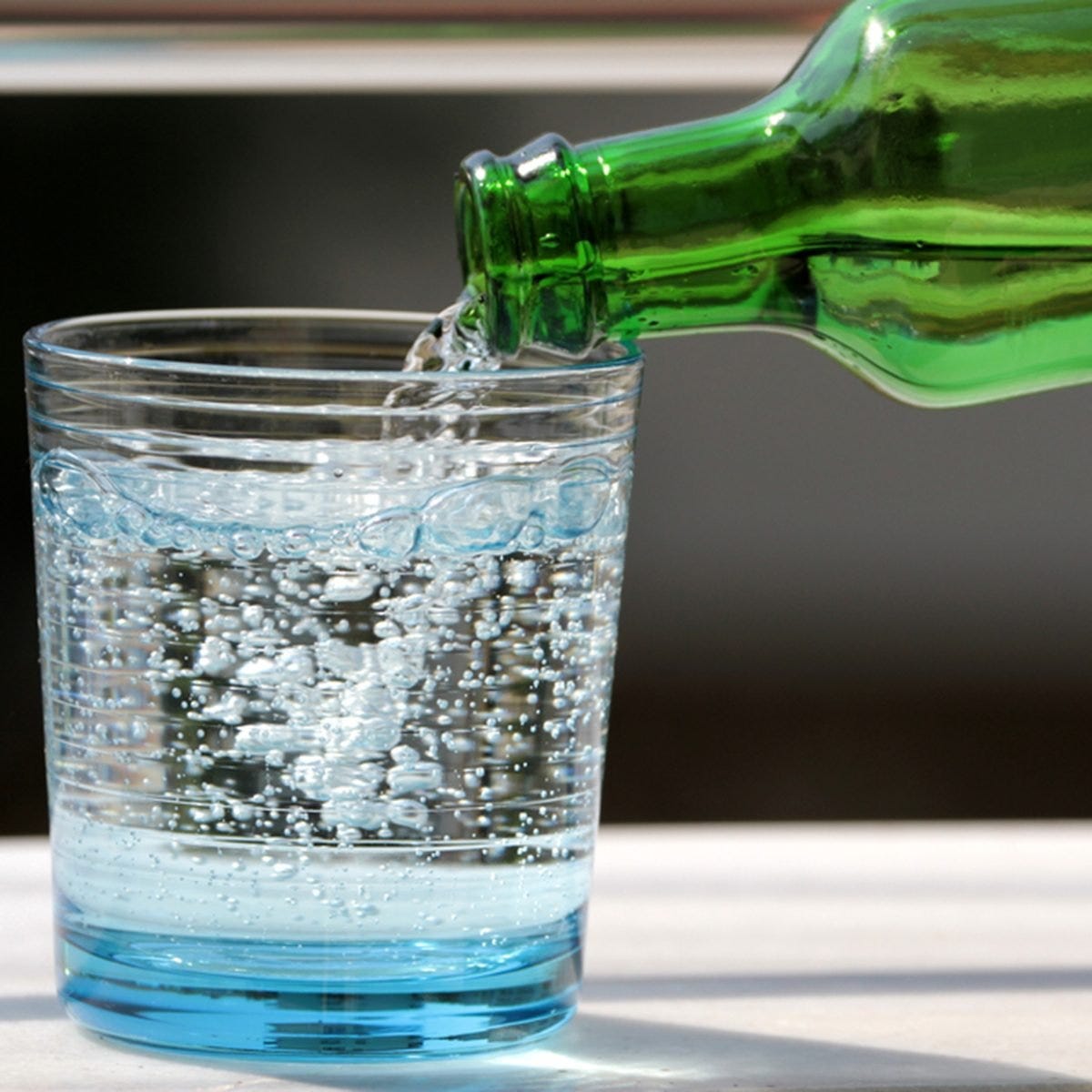Boost Your Health With Carbonated Water
Water with some seriously good health effects!
Ever wonder if there's more to those little bubbles in your sparkling water than just a refreshing tingle? Besides its obvious thirst-quenching abilities, carbonated water might be seriously healthy! It gives your body a boost in the oxygen department, thanks to something called the Bohr effect, and due to some interesting research, we now know it shows potential to combat cancer cells.
Negative Claims
You've probably heard some whispers about carbonated drinks being bad for you, right? Things like weakening your bones, chipping away at your teeth, or upsetting your stomach? These worries mostly come from old studies looking at sugary sodas and colas—the ones loaded with chemicals and tons of sugar.
The real troublemaker was phosphoric acid, an ingredient found in many sodas, not the carbonation itself. The same goes for teeth: it's the high acidity and added flavorings of sugary sodas that cause enamel erosion, not the fizz. But plain old carbonated water is a different story. Carbonation is not harmful in and of itself, but can be very good for you, as we’ll see.
The Bohr Effect
The Bohr Effect is a little-known twist in the tale of how our bodies utilize oxygen, and it's quite the game-changer! It hinges on carbon dioxide (CO2), a gas more often villainized than celebrated. We usually think more oxygen equals more energy, right? But here's a quirky contradiction: a reasonable amount of carbon dioxide (CO2) is essential for oxygen to effectively fuel your cells. The CO2 in that carbonated drink gently adjusts your body's pH levels, which might enhance how efficiently your muscles can extract oxygen from your blood cells, according to drberg.com.
Understanding the relationship between CO2 and oxygen explains why hyperventilation causes distress. It's not just about having "too much oxygen," but rather an imbalance. Rapid breathing expels too much CO2, disrupting the oxygen-CO2 balance and leading to symptoms like dizziness, lightheadedness, and shortness of breath. The paper bag method works by increasing CO2 inhalation, restoring this balance.
So, CO2 isn’t just a waste product, as many assume, but it's an active player in oxygen delivery. Even the brain benefits from it. While CO2 itself doesn't directly "get more oxygen" to the brain, it plays a crucial role in regulating blood flow and metabolism in the brain. By increasing blood flow and potentially reducing oxygen consumption, CO2 helps optimize the brain's ability to utilize available oxygen.
CO2 then is highly important in making sure your body can use the oxygen it takes in. It's all about keeping things balanced—what scientists call homeostasis—and CO2 is right there in the middle of it, making sure your cells get the oxygen they need.
Mineral Springs
The use of mineral springs for health purposes has a long history in Europe, dating back to Roman times. Many of these springs naturally contain high levels of dissolved carbon dioxide. Over centuries of observation, people noticed that bathing in these waters alleviated certain ailments, particularly circulatory issues. This empirical evidence laid the foundation for the scientific investigation of CO2's therapeutic effects.
The properties" of CO2 in spa treatments refer to its well-documented ability to improve circulation. This effect has therapeutic benefits for a range of conditions, from peripheral vascular disorders and diabetic wounds to post-stroke recovery. The effects are significant and based on solid physiological principles.
A Hidden Warrior Against Cancer
As discussed earlier, CO2 plays a role in the Bohr Effect, which helps release oxygen from hemoglobin to tissues. This improved oxygen delivery could potentially help in certain cancer therapies.
Cancer cells inside the body are more alkaline compared to their surroundings. The intracellular pH of cancerous cells is typically somewhere between the values of 7.1 and 7.7, which is higher than normal cells (around 7.2). Researchers are now deeply investigating how CO2 influences the inner workings of cells (cellular physiology) and, crucially, how it affects the behavior of tumor cells.
Studies are uncovering some fascinating connections. For example, without enough CO2 being converted into carbonic acid, cells can become overly alkaline and have a very high uptake of water, creating an environment where certain diseases can thrive.
Crucially, CO2 lowers the pH of cells, thereby allowing extra water to be excreted. This is the exact opposite of linoleic acid (LA) and estrogen, both of which suck water into your cells which causes the cells to swell. Cellular swelling, aside from being the cause of edema, is also a feature of cancer cells.
But CO2 might offer a solution here. Studies suggest it has the potential to interfere with metastasis (the spread of cancer), trigger apoptosis (programmed cell death, or cell suicide) in cancerous cells, and even block troublesome genes associated with cancer cell growth.
Carbonation Devices
Want to invest in the health benefits of carbon dioxide? Then a carbonation device may just be the ticket! These nifty gadgets make it super easy to whip up fresh, fizzy water whenever you like. Just pop a reusable bottle into a machine, (like a Sodastream) and with a quick press or pump—boom—instant bubbly goodness without sugars or artificial sweeteners.
Carbonated water aligns perfectly with a health-conscious lifestyle. It’s a small change that can make a big difference—from aiding digestion to potentially supporting heart health, the science behind carbonated water's benefits continues to bubble to the surface.
While further research will undoubtedly uncover even more about this fizzy phenomenon, one thing is clear: carbonated water is more than just a trend; it's a reminder that even the simplest compounds can have a profound impact on our well-being.
Your presence here is greatly valued, and that’s why all our articles are free on this site. But if you've found the content beneficial, please consider supporting it through a cost-effective paid subscription. This plays a vital role in covering operational costs and supports the continuation of this independent, unbiased research and journalism work. Thanks so much!
If shy about commitments, feel free to leave a one-time tip!








